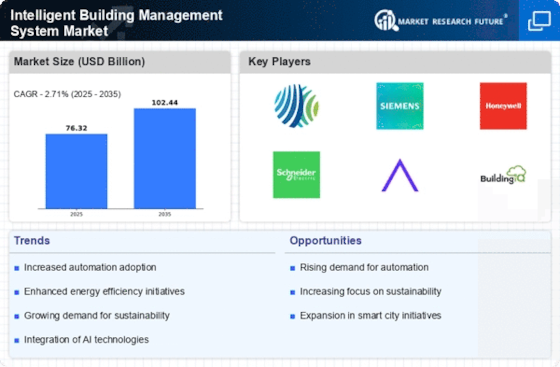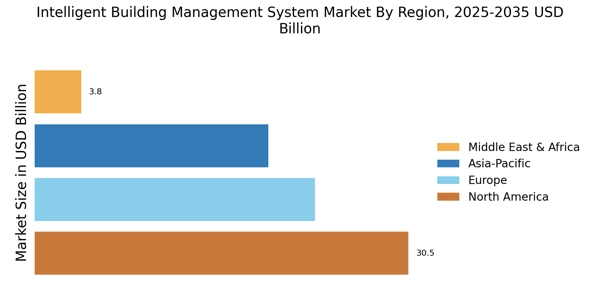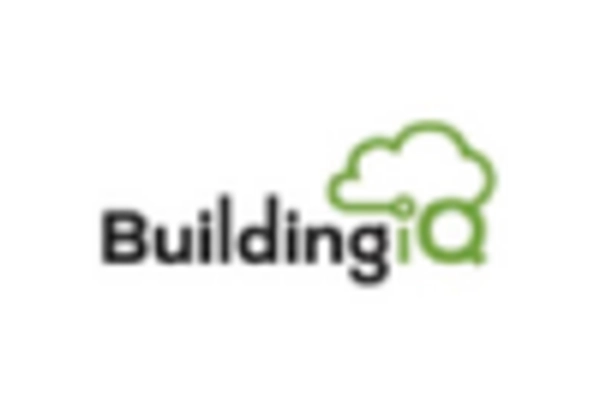Regulatory Compliance and Standards
The Intelligent Building Management System Market is significantly influenced by regulatory compliance and standards. Governments and regulatory bodies are increasingly mandating energy efficiency and sustainability measures in building operations. Compliance with these regulations often necessitates the implementation of intelligent management systems that can monitor and report on energy usage and emissions. As a result, organizations are compelled to invest in these systems to meet legal requirements and avoid penalties. This regulatory landscape is likely to propel the growth of the Intelligent Building Management System Market, as adherence to standards becomes a critical factor for operational viability.
Rising Demand for Energy Efficiency
The Intelligent Building Management System Market is experiencing a notable surge in demand for energy-efficient solutions. As energy costs continue to rise, organizations are increasingly seeking systems that optimize energy consumption. According to recent data, buildings equipped with intelligent management systems can achieve energy savings of up to 30%. This trend is driven by regulatory pressures and the need for sustainable practices, prompting businesses to invest in technologies that enhance energy efficiency. Consequently, the Intelligent Building Management System Market is likely to expand as more entities recognize the financial and environmental benefits of adopting such systems.
Growing Adoption of Smart Technologies
The proliferation of smart technologies is a key driver in the Intelligent Building Management System Market. As the Internet of Things (IoT) continues to evolve, buildings are becoming increasingly interconnected, allowing for seamless communication between devices. This interconnectedness enhances operational efficiency and provides valuable data insights for building managers. Market analysis indicates that the adoption of smart technologies in building management is expected to grow by over 20% in the next five years. This trend underscores the importance of intelligent systems in optimizing building performance and meeting the demands of modern occupants, thereby fueling the Intelligent Building Management System Market.
Advancements in Automation Technologies
Technological advancements in automation are significantly influencing the Intelligent Building Management System Market. The integration of advanced automation technologies, such as artificial intelligence and machine learning, allows for real-time monitoring and control of building systems. This capability enhances operational efficiency and reduces human error. Market data indicates that the automation segment is projected to grow at a compound annual growth rate of over 10% in the coming years. As organizations strive for smarter buildings, the demand for sophisticated automation solutions within the Intelligent Building Management System Market is expected to rise, fostering innovation and competition.
Increasing Focus on Safety and Security
Safety and security concerns are paramount in the Intelligent Building Management System Market. With the rise in urbanization and the complexity of building infrastructures, there is a growing need for integrated security solutions. Intelligent building systems can incorporate surveillance, access control, and emergency response features, thereby enhancing overall safety. Recent statistics suggest that investments in security technologies within buildings are expected to increase by 15% annually. This focus on safety not only protects assets but also fosters a sense of security among occupants, driving further adoption of intelligent management systems in the market.
















